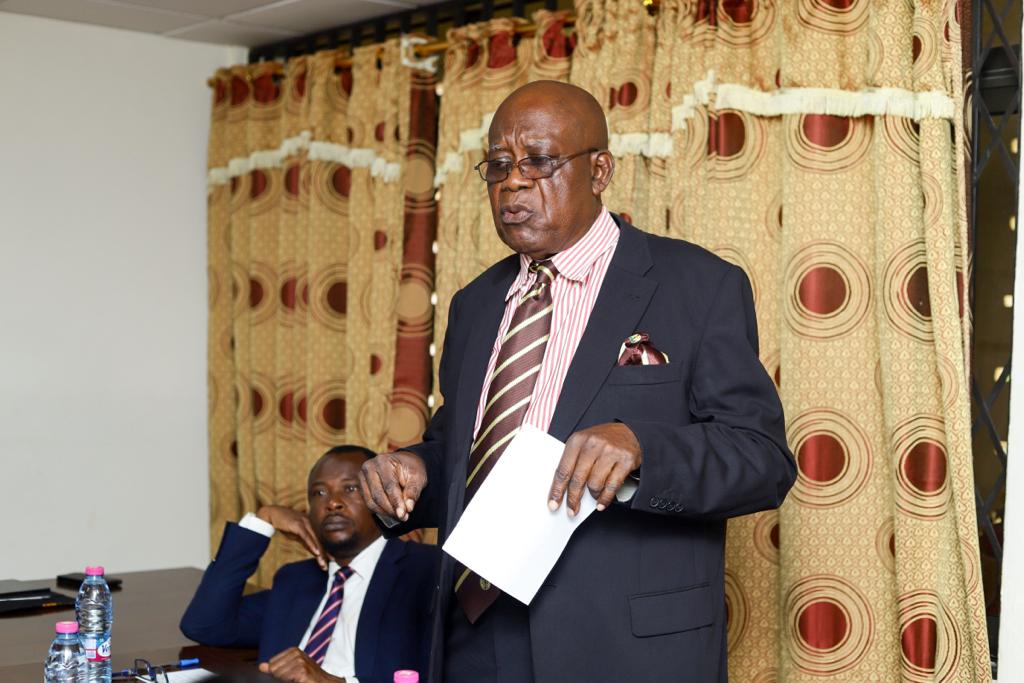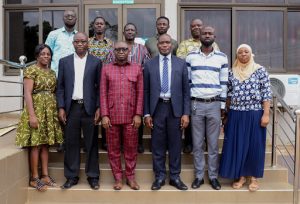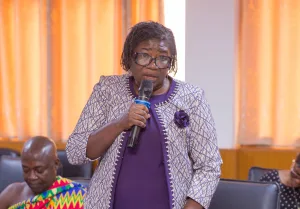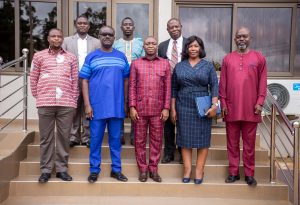
Following a stakeholders’ meeting held on September 11, 2021, to discuss proposed project cooperation between TABCON Energy and the University of Energy and Natural Resources (UENR), a Memorandum of Understanding (MoU) has been signed by the two institutions to begin work on the building of a 65-megawatts Hybrid Power Project to complement the national grid.
The project led by the Acting Head, Department of Computer and Electrical Engineering, Ing. Isaac Kofi Otchere is located on the Tain River of the Bono Region.
In his statements before signing the agreement on April 7, 2022, the Vice-Chancellor, Prof. Elvis Asare-Bediako acknowledged that the technical project collaboration between an academic institution and industry is the first of its kind in the history of the University and it must be applauded. “This is in direct consonance with the Sustainable Development Goals (SDGs) four (4) which calls for ensuring inclusive and equitable quality education and promoting lifelong learning opportunities for all”, he added.

The Vice-Chancellor further revealed that the UENR-TABCON partnership is a solid foundation that shall require these institutions to build a Hybrid solar-hydro renewable energy farm, Developing Eco-tourism, Nature conservation and Value-added Agriculture, and the development of the Nkoranza Regional Airport and Aero City for tourism and transportation of agricultural products to ready markets.
The CEO of TABCON Energy, Dr. Paul Kwaku Tabiri, on his part expressed his happiness that the discussion has yielded results. Bridging the gap between industry and academia, Dr. Tabiri underscored that academic institutions play a significant role in government policy and decisions making, saying that industries cannot function properly without engaging the expertise and skills of graduates.

He said UENR is expected to solely provide the technical skill in building of the dam adding that the partnership of TABCON Energy with the University would give the platform for Ghana to know the generational benefits of the project. This, he said would give the University monopoly on operating the entire system, and create an opportunity for more research works and publications on the project based on the data that would be generated.
Dr. Tabiri hinted that the project has the German government’s support, which would partly fund the project. He, therefore, called for a strong commitment toward the fruition of the project.







